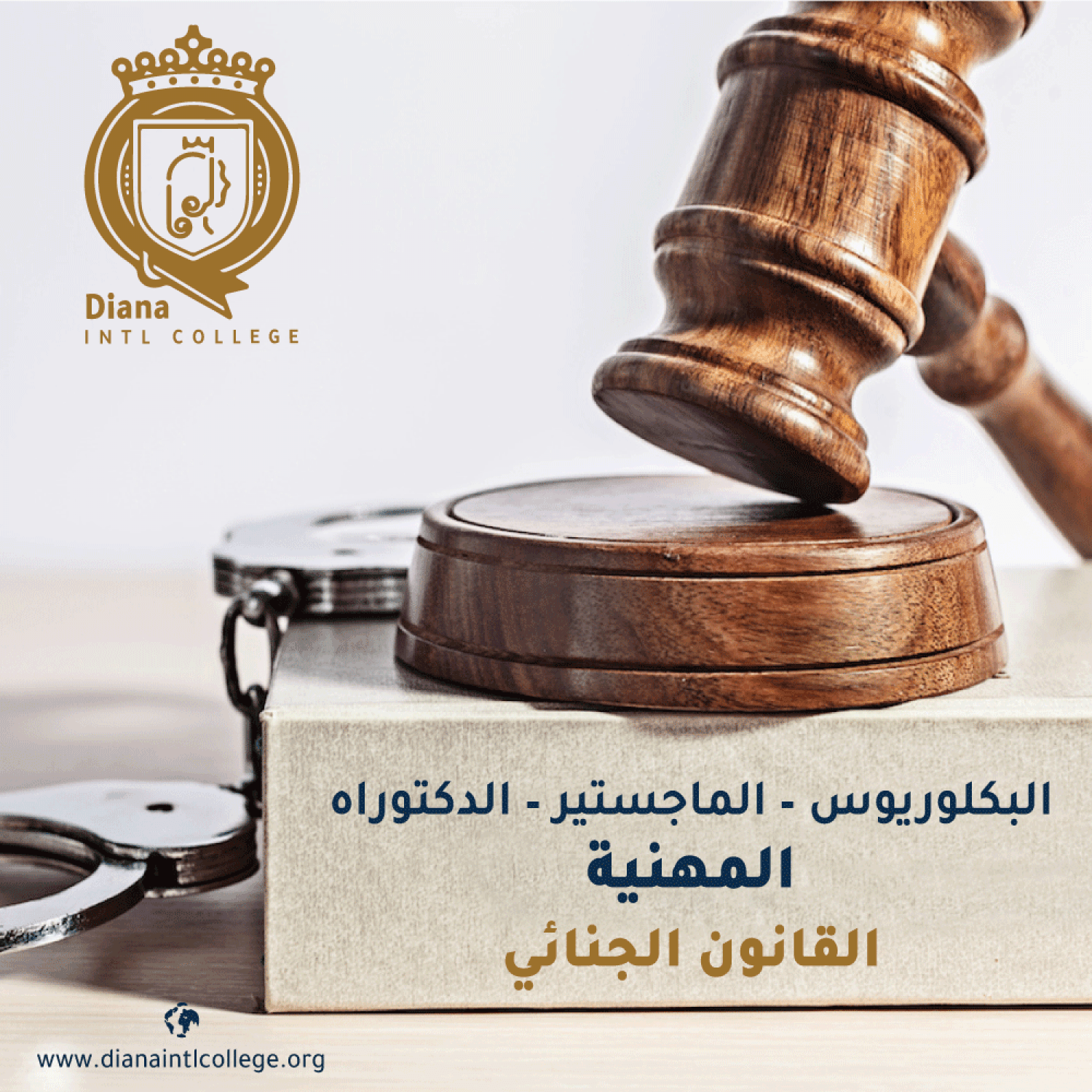Department of Law - Criminal Law

The criminal law programme will consist of three chapters, and each chapter will address its main themes.
Chapter 1: Crime Legally:
The offence is an act or omission that violates a criminal rule of criminal law and requires punishment under the Act. In this chapter, we will address the following topics:
-Understanding the crime
-Crime prevention
- Elements of the crime
-Criminal contribution
-Criminal proceedings
- Types and forms of international and domestic crimes
- Reasons for legalization
-Criminal liability prohibitions
Chapter 2: Criminal Law:
We have also known that criminal law is a set of rules that deal with criminalizing an act that causes harm to society. In this chapter, we will learn what the concept of criminal law is, and the basis on which it is based. We will address the following topics that will teach us more about what criminal law is:
-The concept of criminal law
-Criminal law sections
-Criminal law methods
-Criminal law legislation
-Criminal legal terms
-Sources of criminal law
-Legal interpretation
-The difference between criminal trials and the penal code
-The principle of legitimacy
-The principle of regionalism
-The principle of non-reactionary
-Examples of some criminal offences
Chapter 3: Methods of criminal investigation:
A criminal investigation involves examining the facts, to be used to verify the existence of the crime, and to prove the guilt of the offender. The investigation must contain research, interview, interrogation, collection and preservation of evidence. Chapter axes:
- The qualities of the investigator
-Criminal evidence methods
-Judicial control
- Detection of drug use and dealing with detainees
- Crime scene preparation for murders and robberies
-Protection of evidence at the crime scene
- Gathering evidence at the crime scene
- Fingerprinting
-Dealing with blood stains at the crime scene.

